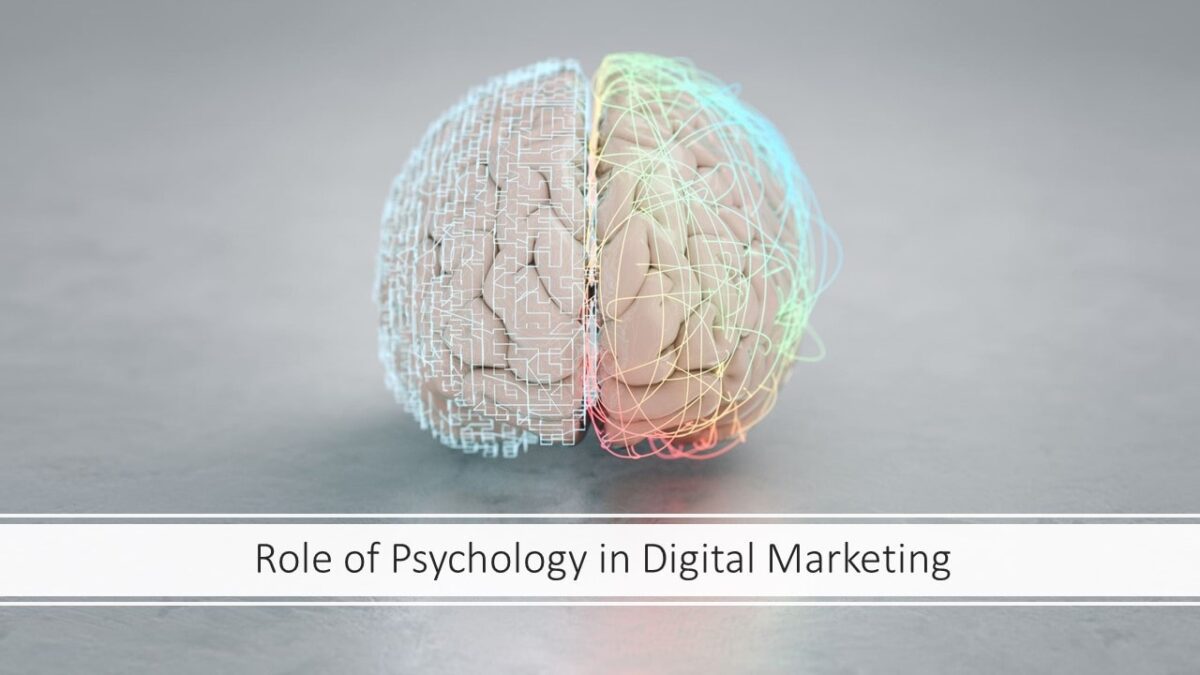Understanding human behavior is at the heart of successful marketing. In the digital age, psychology plays a pivotal role in crafting campaigns that resonate, engage, and convert. This article explores how psychological principles influence consumer behavior and how businesses can leverage these insights for impactful digital marketing strategies.
Why Psychology Matters in Digital Marketing
Psychology helps marketers understand the motivations, desires, and decision-making processes of their audience. By integrating psychological principles, digital marketers can:
Craft personalized experiences that connect emotionally.
Influence purchasing decisions through persuasion techniques.
Foster trust and loyalty by aligning with audience values.
Key Psychological Principles in Digital Marketing
1. Social Proof
People tend to follow the actions of others, especially in uncertain situations. Displaying reviews, testimonials, and user-generated content encourages trust and credibility.
2. Scarcity and Urgency
Limited-time offers and exclusive deals tap into the fear of missing out (FOMO), driving quick decision-making and conversions.
3. Reciprocity
Offering free value, such as downloadable guides or free trials, can create a sense of obligation, encouraging customers to reciprocate with purchases or loyalty.
4. Anchoring
Presenting a higher-priced option first influences how customers perceive value, making subsequent offers seem more reasonable.
5. The Power of Emotions
Emotions drive decisions more than logic. Campaigns that evoke happiness, nostalgia, or empathy are more likely to engage and convert audiences.
Applying Psychology to Digital Marketing Strategies
1. Personalization
Using data-driven insights, create tailored experiences for your audience. Personalized emails, product recommendations, and dynamic website content enhance engagement.
2. Storytelling
Humans are wired to respond to stories. Share authentic brand narratives to evoke emotions and build connections.
3. Visual Hierarchy
Design elements like colors, fonts, and layout guide users’ attention. Use contrasting colors for CTAs (call-to-actions) and ensure a clean, user-friendly interface.
4. Loss Aversion
Highlight what customers might lose if they don’t act. For example, “Last 2 items in stock!” appeals to the desire to avoid loss.
5. Social Media Engagement
Engage audiences with interactive content like polls, quizzes, and live sessions. This fosters a sense of community and involvement.
Case Studies: Psychology in Action
1. Amazon’s Urgency Tactics
Amazon effectively uses scarcity and urgency by showing stock levels (“Only 3 left in stock”) and limited-time offers to drive purchases.
2. Coca-Cola’s Personalization Campaign
The “Share a Coke” campaign used names on bottles to evoke personal connections, boosting sales and social media engagement.
Challenges in Using Psychology in Digital Marketing
Ethical Considerations: Overusing psychological tactics can feel manipulative, potentially damaging trust.
Cultural Differences: Psychological principles may vary across regions; what works in the USA may not resonate in China or India.
Data Privacy: Personalization relies on data collection, requiring strict adherence to privacy regulations like GDPR and CCPA.
Main FAQs
Why is psychology important in digital marketing?
Psychology helps marketers understand consumer behavior, enabling the creation of campaigns that resonate and convert effectively.
What is social proof, and how does it work?
Social proof is the influence of others’ actions on individual behavior. Reviews and testimonials build trust and credibility for brands.
How can emotions enhance digital marketing strategies?
Emotional campaigns evoke feelings like happiness or nostalgia, making content more engaging and memorable.
What is the role of personalization in digital marketing?
Personalization tailors experiences to individual preferences, boosting engagement and customer satisfaction.
What are some ethical concerns in using psychology for marketing?
Overusing tactics like urgency or FOMO can feel manipulative and harm brand trust. Marketers should aim for ethical practices.

